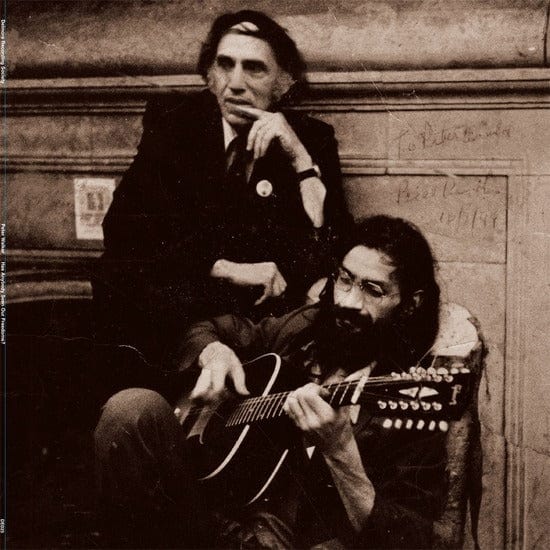Shipping calculated at checkout
Low stock
Pickup currently unavailable
Please note:
ALL NEW: While we do our best to ensure that our images are up to date, if you are looking for a specific cover or specific color vinyl, please send us an email to verify before purchasing.
All USED: Pictures of the actual item are featured. What you see if what you get on those.
Peter Walker - Has Anybody Seen Our Freedoms? LP
NEW. SEALED.
Includes full download of album.
Delmore Recording Society
Peter Walker, the American acoustic guitar pioneer, re-emerged as a recording artist in 2006 with four tracks on A Raga for Peter Walker, an all-star tribute recording on Tompkins Square and a collection of unreleased '70s tapes. Since that time, there have been four new albums of Spanish and steel-string guitar recordings, and the re-release of Rainy Day Raga, his 1966 Vanguard debut. Has Anybody Seen Our Freedoms? is a previously unreleased album, cut at New York's Mercury Studios. The reasons its tapes have remained in Walker's "vault" (a converted bread truck) are unclear -- but it hardly matters. Where his previous studio albums featured other musicians as accompaniment, this date is completely solo, just voice and steel-string guitar, one take, no overdubs. It is his song cycle for the end of the 1960s, composed and recorded during the heat of an era intent on ending the Vietnam War, and culturally reshaping everything that came after. But these are not "protest" songs; they are snapshots of a man's life in the process of living. His mature playing style, which weaves his formal studies of the Indian carnatic tradition, American folk styles, and Spanish and Andalusian folk and flamenco lineage seamlessly, is fully present. Even in his vocals, Walker uses the raga form, offering his lyrics as a seldom deviating drone. And his lyrics, which revolve around various poetic and storytelling forms, are as compelling as his melodies and harmonic investigations. "Me and My Lady" is a love song that slips through Spanish, Celtic, and Appalachian folk as well as modal concerns; it illustrates longing and delight. "Johnny Cuckoo," an instrumental, is more urgent, offering a dazzling display of fingerpicked and rhythmically complex strumming. "Early in the Morning," another love song, uses the raga form as it encircles flamenco, binding the two traditions. His reading of the public domain "Pretty Bird" is haunted by the folk-blues even in its dramatic modal presentation. The song "Fifty Miles" is a labyrinthine recounting of Walker's initial journey to Puerto Vallarta in 1964. "Wonder," the closer and longest cut, is a driven, kaleidoscopic number; its illustrious implementation of raga, adapted flamenco, and a collision of Andalusian folk forms is staggering. The song's narrative is equally engaging. In addition to the music, there is a self-penned 4,300-word essay by Walker, distilled by Delmore Recordings' Mark Linn from a 40-page essay (that we'd love to read in its entirety) as it details his travels and experiences that, at least tangentially, connect to the spirit of the music. Even the cover photo -- of Walker with radical attorney William Kunstler at Detroit's famed Garwood Mansion commune -- is a testament to the era. Has Anybody Seen Our Freedoms? adds immeasurably to his musical and cultural legacy, and is a must for any fan of American guitar music.

